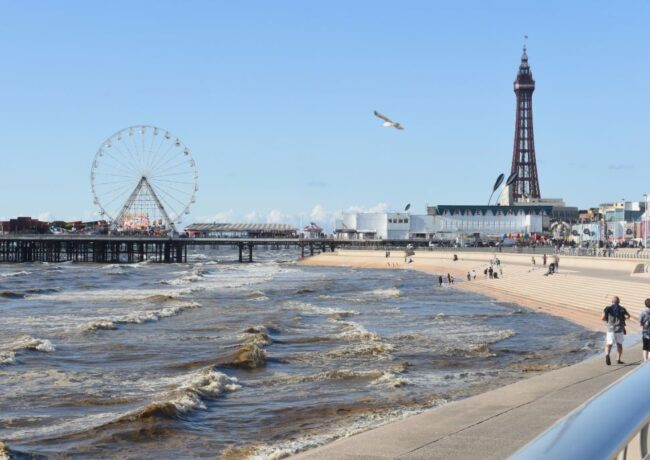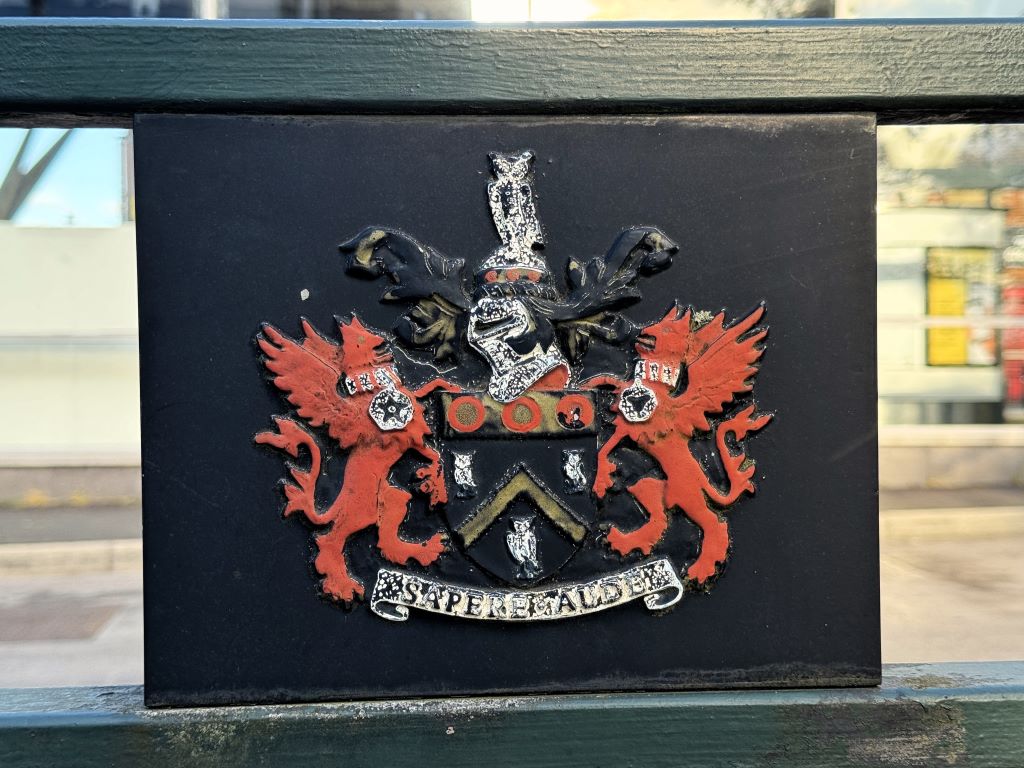Blackpool, Salford make list of towns with greatest levelling up potential
With the release of the Levelling Up White Paper expected on Wednesday, a new report spotlights the communities that would benefit the most from government investment.
To craft the Levelling Up Opportunity Index, analysts from zero-carbon housebuilder Etopia Homes looked at how the 34 largest towns and cities outside of London compared across several factors:
- Net non-domestic rates collected per capita of population – to establish how much the town needs help to reach its commercial potential.
- Ratio of net non-domestic rates collected per capita to council tax collected per capita – to determine if the town was taxing people and property more than business. Cities that generate more money through business rates than council tax have a weaker case for levelling up, according to the study.
- Ratio of people commuting into the authority to those commuting out of it – to see if the town needs assistance to function as an employment hub.
- GVA per capita – to understand if the town needs help to achieve reasonable levels of growth.
- Growth in GVA per capita since 2000 – to see if the town is moving in the right direction without levelling up assistance.
- Total area of land on the brownfield register – to indicate if the town has space for sustainable growth.
“We wanted to create an evidence base which can help the government to weigh up where it should invest levelling up funds to best drive economic growth,” said Etopia Homes founder and chief executive Joseph Daniels.
“The Levelling Up Opportunity Index provides the government with a new lens with which to evaluate the economic potential of Britain’s largest cities and towns.”
Bradford and Wolverhampton came in as the top-ranked towns on the index. Wolverhampton is also one of the first areas to be chosen for a regeneration programme from the Department for Levelling Up, Housing and Communities, which will be featured in the upcoming white paper. The other city to make the programme, Sheffield, came in sixth on the Etopia Homes ranking.
Only one North West community made the top ten of the index – Blackpool, which came in seventh place. Salford was ranked 14th, followed by Carlisle in the 15th spot, and Liverpool in the 20th. Preston was ranked 29th and Manchester 32nd.
WSP Strategic Advisory peer-reviewed and endorsed the study, with director Ashley Dunseath saying it “provides new insight into the economic prospects of our largest cities and towns”.
Dunseath continued: “In particular, the index highlights places which have missed out on significant investment over several decades but are known to have genuinely strong economic potential.
“Government should consider awarding levelling up funding to those authorities able to evidence the greatest opportunity, and consequently most capable of demonstrating transformational growth by becoming self-sustaining and in control of their own economic prosperity.”
The Levelling Up Opportunity Index received praise from Tom Arnold of the Heseltine Institute for Public Policy, Practice and Place at the University of Liverpool.
“This study gives a good indication of the economic gap between our most successful towns and cities, and those that could benefit most from targeted support to unlock their true economic potential,” Arnold said.
“The economic benefits of creating thriving, self-sufficient city-regions – not just for those that live there, but those who live within commuting distance – have been well understood by previous governments,” he continued. “Improving the economic fortunes of large towns and city-regions is crucial to the prosperity of places within commuting distance.
“The forthcoming white paper must explain how the economic potential of city-regions across the North and Midlands can be realised. If levelling up is to be successful and if it is to be of long-term benefit to the nation, then it must clearly include levelling up the economies of places like Wolverhampton and Bradford.”
Paul Maynard, MP for Blackpool North and Cleveleys, also praised the study.
“Levelling up should be all about allowing towns like Blackpool to fulfil their potential,” Maynard said. “With £40m secured via the Towns Fund, the largest amount in the country, now is the time to start investing in people so we can take advantage of the infrastructure investment coming to the town.
“This index, and the data behind it, show why the levelling up agenda remains vitally important to towns and cities across the country that should be seen as opportunities as well as challenges.”
See the full Levelling Up Opportunity Index below:
- Bradford (highest priority)
- Wolverhampton
- Coventry
- Tie between Luton and Plymouth
- Sheffield
- Blackpool
- Middlesbrough
- Derby
- Three-way tie between Birmingham, Leicester, and Stoke-on-Trent
- Sunderland
- Salford
- Tie between Carlisle and Portsmouth
- Brighton and Hove
- Kingston upon Hull
- Ipswich
- Tie between Liverpool and York
- Tie between Leeds and Southampton
- Nottingham
- Bristol
- Reading
- Tie between Norwich and Lincoln
- Preston
- Newcastle
- Oxford
- Manchester
- Milton Keynes
- Cambridge





It’s quite eye-opening seeing Manchester in the same space as Oxford and Cambridge.
By Rich X
Very odd list ….for example no mention of Pennine Lancashire towns like Burnley and Blackburn etc where deprivation is massive
By George
It’s hard to imagine that Birkenhead Wirral is not on there, or is that counted as Liverpool?!
By Martin Joseph Lowe
How many marginals here?
By Disgruntled Goat
Re: Julia – I don’t believe this comment for one second Birkenhead is larger than many of the places mentioned in the article.
The figures below provided by centre for cities.
Birkenhead – 324K
Blackpool – 220k
Cambridge – 125k
Luton – 214k
Derby – 257k
Sunderland – 278k
Oxford -152k
Milton Keynes – 270k
By Flan
Preston appears to be going through quite a renaissance. York and Leeds on par? Really!
By Elephant
York and Liverpool I meant on par?
By Elephant
@Juila I would be very interested to see their logic if I’m honest as for Birkenhead being included in Liverpool if this is the case, Salford should be included with Manchester. In terms of where I’d place Birkenhead probably somewhere between Sunderland and Hull.
By Flan
@Flan. The figure you give for Birkenhead – 324K – is for the Metropolitan Borough of Wirral. Birkenhead – pop. 99K – being it’s largest town and main commercial and civic centre.
I don’t know if Birkenhead is counted as Liverpool in this analysis or not.
By SW
Centre for Cities stats are often dubious in terms of Liverpool City Region/Merseyide and the population downgraded/underestimated, they say the regions figure is around 600,000 instead of around 1.5 million, and it appears central government is fed these numbers.
By Anonymous
@SW – The figure I gave of 324K is using data from primary urban areas (PUAs) – a measure of the “built-up” area of a large city or town, rather than individual local authority districts.
The Birkenhead Urban Area, as defined by the Office for National Statistics includes Birkenhead, Wallasey, Bebington, Ellesmere Port (which is outside the Metropolitan Borough of Wirral) and the contiguous built-up areas which link those towns. In the 2011 Census, the area so defined had a total population of 325,264, making it the 19th largest conurbation in England and Wales.
By Flan
@Flan. I stand corrected.
By SW
Where are all the big GM towns on this list? Wigan, Bolton and Stockport are all bigger than quite a few places on this list. Where is Warrington?
By Elephant
With regard to C for C’s and their interpretation of the Liverpool and Wirral area, it is often misguided or inaccurate. I know they have a default factor of continuous development for some reports and not for others.
In the case for Liverpool and Wirral, we have been connected by a ferry service for over 800 years, a commuter railway tunnel opened in 1886, two road tunnels one approaching 88 years of age, with an average yearly traffic count of many millions plus numerous other associations of the port and commerce etc.
They choose to ignore certain obvious indicators of union between us and prefer for whatever reasons thy have to diminish our status. They are even quite arbitrary with our land locked suburbs many of whom were created by the advancement of the Merseyrail network in the 19th C.
What does it matter you say, well it can effect us politically and economically and even diminish our standing as a major centre for investment, dare I say HS2 as an example.
By Liverpolitis
Not sure why the article doesn’t include a link to the source? https://www.projectetopia.com/media-articles/levelling-up-opportunity-index. The Etopia marketing people have done a good job to get this picked up, but have a read and draw your own conclusions re methodology and conclusions.
By NW